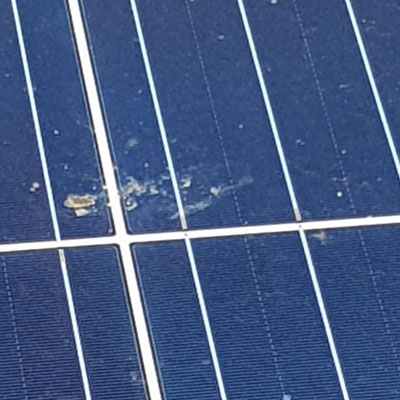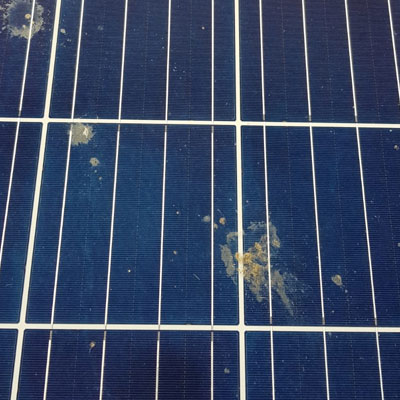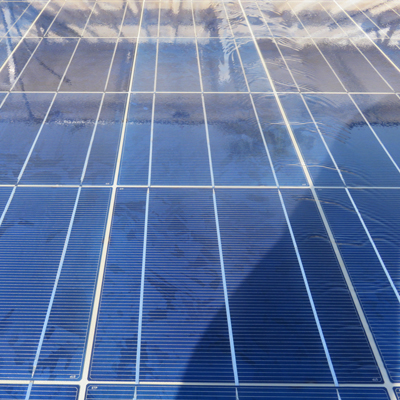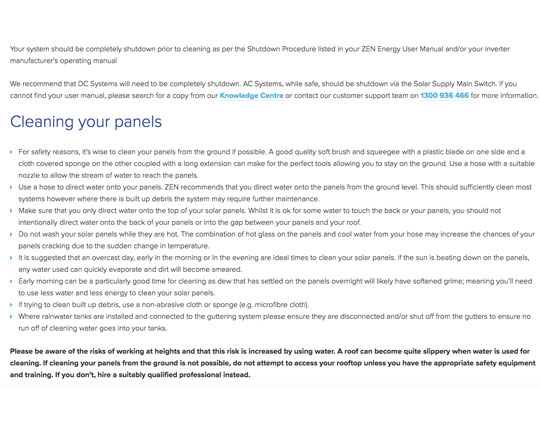Want more from your solar panels?
Rain does not clean solar panels, bird droppings and dirt could be costing you money



RESIDENTIAL SOLAR PANEL CLEANING MELBOURNE
Does your system work as well as the day you got it?
Do you regularly climb up on your roof to clean your panels? Is it safe to do so?
While our system costs only a fraction of the cost of the original solar panels you bought, the additional electricity it recovers is equally as valuable. On a per kw basis we are a far better investment.
We have seen panels that are dirty even after very heavy rain. That is
because grime, especially bird poo, becomes ‘baked on’ if they are not rinsed daily. A good example of this is the southern suburbs of Melbourne because of seagulls or the northern suburbs of Adelaide that experience dust storms.
Remember, one dirty panel in a string of panels can affect the performance of all of the panels in that string. For the same reason, paying for manual cleaning, which can be expensive, (especially for inaccessible sites), can be a waste of money as panels get dirty again within a short time.
Request a free quote and start saving today!
This is the process that is recommended to clean your panels.
It is not simple! Why spend your time cleaning solar panels?
MANUAL CLEANING
Manual cleaners damage tiles and solar systems. We have seen footprints on solar panels from manual cleaners. These panels will be permanently ruined with monoline cracks. Manual cleaners clean during the day when panels are too hot to clean and with chemicals that are not appropriate to use. These cleaning methods can void your panel warranties.
Loss rates figures vary dramatically between sites and types of installations. We are aware of losses over 50% at some locations. While this is rare, there are a large number of factors that can impact the cleanliness.
A simple way to determine if you are losing power is to monitor your generation at the same time each day. Have your system manually cleaned and then check the output the following days at the same time. Assuming that the weather has been similar across the relevant days, you will be able to see how much power you were losing. Note, power loss between cleanings is cumulative and each day you are losing

